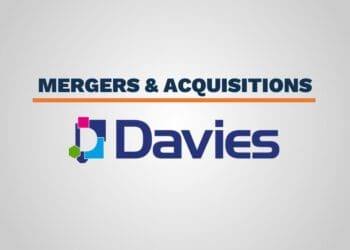Benefits packages used to include mainly vacation days, paid time off and health care coverage, and employers found those offerings were sufficient to attract distinguished talent. Today, that’s no longer the case. More and more skilled professionals expect retirement savings options to be part of their total compensation and benefits package.
It’s been well-documented that Americans’ personal retirement savings are falling short of what they need to be if workers are to retire comfortably. Employees have long been able to set up their own Individual Retirement Savings (IRA) accounts, but research proves that, unless their employer makes a plan available, most employees won’t save enough for retirement. For this reason, it’s very important that employers show they care about their employees’ futures and financial health.
HR directors have therefore been tasked with instituting and highlighting attractive, competitive retirement policies and benefits, while at the same time managing costs and risks.
One of the more serious risks of offering a retirement savings program for employees is the risk of falling out of compliance with the Employee Retirement Income Security Act (ERISA), a federal law that requires plan sponsors and financial services companies to meet the Fiduciary Standard of business conduct to protect the financial interests of employees (plan participants). A plan that complies with ERISA is often referred to as a “qualified plan,” while other plan types that do not meet ERISA standards are called “nonqualified plans.”
The risks for noncompliance include fines and penalties for improper recordkeeping and nondiscrimination testing. Employers who misappropriate employee savings can also face the possibility of criminal charges.
For most large companies and a growing list of smaller companies, qualified plans are well worth the extra work. They offer the most generous contribution and tax deferral maximums, so they are popular among business owners and employees who enjoy the ability to grow their savings quickly and tax-efficiently. However, they demand controls, recordkeeping, testing and reporting to ensure compliance.
The most popular qualified plan is a 401(k) plan.
Selecting the Right 401(k) Provider
By opening a plan with an established 401(k) provider, companies are taking responsibility for the proper management of their employees’ retirement savings.
In order to find the right plan provider for your company and to avoid running afoul of ERISA, I recommend doing substantial research and considering at least four or five different plan providers to make sure they have the following:
1. A track record of ERISA-compliant plan management and administration
Plan providers should be able to demonstrate success working with companies of your size. Some providers, for example, are built to address the specialized needs of the micro- to small-business niche. Be sure to ask for references from clients with a similar headcount.
Whichever provider you select should deliver recordkeeping, communications, asset management and client support for both employers and savers within regulations.
2. Well-defined, documented and tested systems to ensure ongoing ERISA compliance
Providers should spell out documented policies and procedures to make sure regulations are observed consistently. Testing and recovery protocols should be in place as a safeguard so the compliance procedures are never disrupted, as this could put your company and your employees’ savings at risk.
Ask potential providers to share their methodology for required services such as annual nondiscrimination testing, 5500 distributions, fund change communications and fund terminations. You should also ask about their business continuity plan in case their operations are disrupted in any way. Remember, you’re responsible for your employees’ money in a qualified plan. You need to feel confident your plan partner has the systems to keep their money – and you – safe.
3. Familiarity with competitive plans in your industry and market
Every industry marketplace has its peculiarities. For example, employees in some industries are interested in taking a larger role in their retirement savings investments. For these employees, easy online access to their account and the ability to review and adjust their asset allocations are a high priority.
Your provider should be familiar with the features that will help make your retirement plan a competitive benefit in your market, while remaining compliant with ERISA. A plan provider that’s familiar with your industry and business can share their own experiences delivering plans that have performed well for companies like yours.
Retirement savings plans are a powerful and necessary addition to company benefit plans. A thorough, thoughtful approach to choosing your plan provider will help ensure that your plan remains compliant with ERISA regulations while maintaining the competitive advantages you and employees care most about.



 Lisa Chui is the VP of Human Resources and Finance for Ubiquity Retirement + Savings, a pioneer in online financial services for small businesses, dedicated to making retirement savings easy and affordable for all.
Ms. Chui has worked for Ubiquity for five years, and her career is distinguished by her unique contributions to business growth. By harmonizing finance, organizational development and human capital management, Lisa has contributed to the success of high-growth, fast-paced companies while helping employees thrive.
Lisa Chui is the VP of Human Resources and Finance for Ubiquity Retirement + Savings, a pioneer in online financial services for small businesses, dedicated to making retirement savings easy and affordable for all.
Ms. Chui has worked for Ubiquity for five years, and her career is distinguished by her unique contributions to business growth. By harmonizing finance, organizational development and human capital management, Lisa has contributed to the success of high-growth, fast-paced companies while helping employees thrive.










